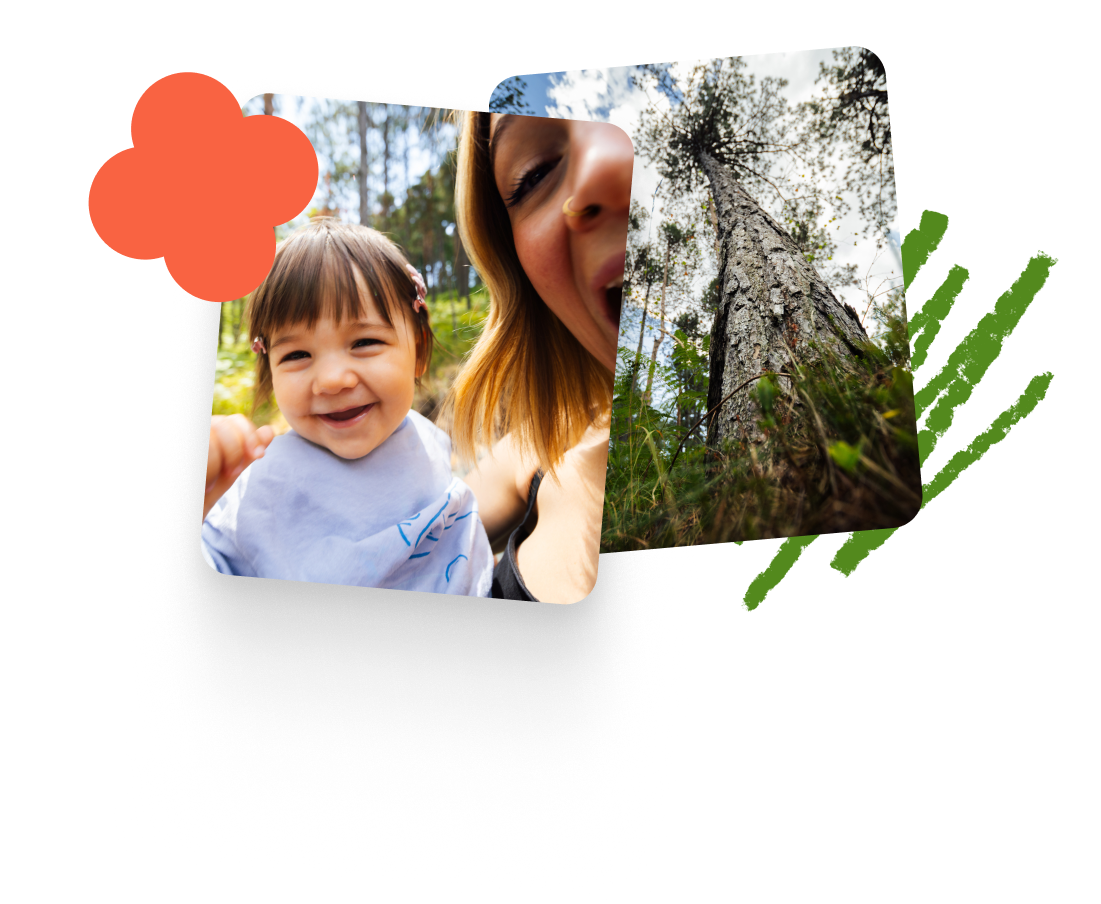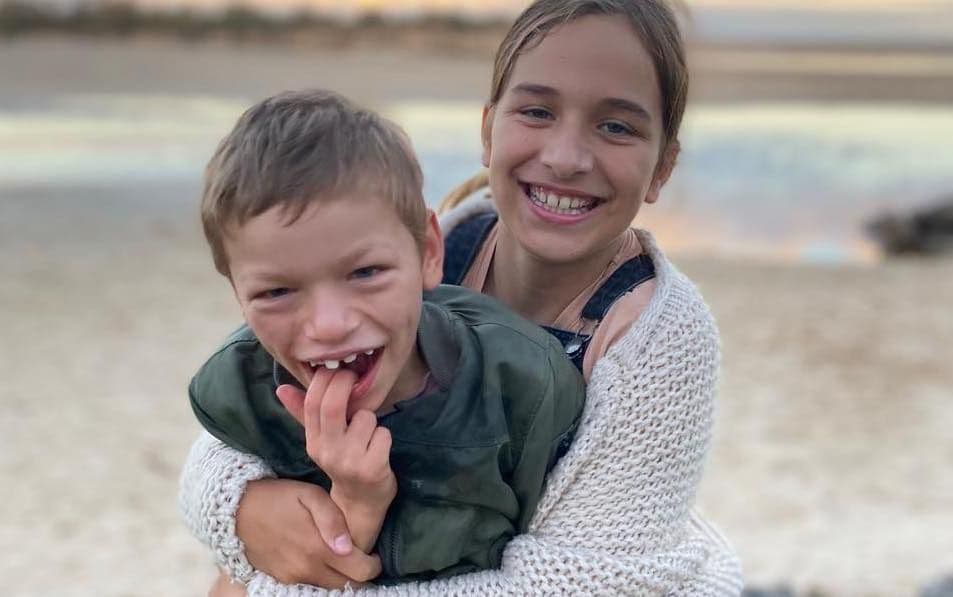
is now part of
Joy Parenting Club!
Families and care organisations using Heba will now have the option to also join Joy. For any questions, reach out to us at hello@heba.care

Families and care organisations using Heba will now have the option to also join Joy. For any questions, reach out to us at hello@heba.care

July 8, 2024
The journey of seeking, getting and sharing a diagnosis is unique to your family. We will all approach it differently, in our own time, in our own way. And that’s 100 percent okay.
It can be an extremely emotional time for some. For others, it can bring a huge sense of relief. We sat down with three Belongside Families (fka Kindred) mums, to talk through their experiences.
Jackie’s story

Our daughter started having seizures around eight weeks old, which is when we were given an initial epilepsy diagnosis. But as she grew, we were back at the hospital again and again. We also noticed her development was delayed. The doctors started throwing the word “genetic” around. We had no idea what that meant, at first.
At first, every test under the sun came back inconclusive. After another series of really dangerous seizure clusters, we went in for another deep dive. When she was three and a half we finally received her SCN8A diagnosis.
It moved really quickly then. They got us in, took us through it all. It was a mixed reaction. We wanted a firm diagnosis so badly, but when the doctors started taking us through the list of risks, we became so fearful and upset.
Genetics is such a cutting-edge field, so we’re learning more and more about our diagnosis all the time. It was a huge thing to take at first, but we’ve got more hope now.
Because our diagnosis journey was so drawn out, our friends and family were really on the ride with us. While they were thrilled when we finally got our SCN8A diagnosis, a lot of them were quite worried, because we were feeling so unsure about it.
We’re so lucky to have such supportive friends. They‘ve been there to help us manage our own anxieties, especially at first. When we’re together, everyone keeps their eye on her to make sure she’s doing okay.
I recently did a Facebook post about my story for SCN8A Awareness Day. It was nice to talk through what we’d been through, but also tell the world that she is not just her diagnosis. She’s a beautiful loving child who carries a few extra struggles. And she handles those struggles so well, she’s nailing it! The post has already sparked some new conversations with family and friends, which has been really empowering.
Now, when sharing the news with new people, or we get a new diagnosis, we focus on all her incredible strengths when we share. Because no diagnosis will change how amazing she is. Or how we, as her parents, strive to let her lead her best life, way beyond her diagnosis.
Deb’s story

When I went to my 12-week scan, everything seemed pretty typical. But when my bloods came back, we learned there was a 1 in 5 chance our baby was going to have Down syndrome.
It was early days for us, so we had quite a bit of time to process and research. Our values have always centred around disability and difference being entirely okay. We’d also had three losses before Elsden, which involved a lot of grief, as well as all sorts of medical appointments and procedures.
It was never going to be a snap decision one way or the other for us. In the end, we decided we were having our baby girl.
We shared our news in stages. At first, we shared with a few very close friends while we were still in the research and processing phase. But none of our family live very close. Most of mine are back in the UK. My husband Chris’ are dotted all around Australia.
We really wanted to share the news with close family face to face. The next time we were all together after we found out was at Chris’ cousin’s wedding. I was 23 weeks at that stage. We told Chris’ mum and sister the day after the wedding celebration. They had such a beautiful response, everything we could have hoped for.
After that, we sent an email to the rest of the family and close friends, then we went broader. That gave us the time we needed to frame the news the way we wanted.
We would have loved to have had more face-to-face conversations, but in the end, the email worked really well. People often have their own stuff to process around news about a diagnosis, so doing it via email gave them time to have whatever initial reaction they needed to have, and then gather their thoughts to respond. It just felt fair to do it that way. We had such beautiful supportive messages!
My advice to family members hearing news of a diagnosis is to respond calmly and supportively. Ask questions because, ultimately, we want to have conversations about disability and difference.
Bree’s story

Dax got his first diagnosis of hearing loss at three days old. He had another seven or eight diagnoses before he was two.
There’s a Japanese proverb that translates to “fall down seven times, stand up eight.” It’s about never giving up hope. That’s what my journey felt like. It felt like every three months I was getting kicked in the guts. And then I jumped up again.
I wonder what it would have been like to get all the diagnoses at once. But getting them in a staggered approach just gave me a little bit of time to process each one.
When Dax was born, we were living in Australia's Northern Territory. We moved home after his first diagnosis. We were living with my family, and Mitch, my partner’s family, were right around the corner.
While it was incredible to have all the support, every diagnosis was almost immediately shared with every member of our family. It didn’t give me much time to process!
I also felt I had to be wary of everyone else’s emotions. While at times all I wanted to do was cry, I would try and put on a brave face, a positive spin on things. I was always mindful in the language I used.
For friends and extended social networks, we ended up creating a Facebook page to share updates. Because the diagnoses just kept on coming, I was losing track of who I’d told what!
Posting to the page became therapy in itself. I’d go home and write it down. I’d read it. I’d change it. After a few days, I’d got my head around it and I’d click post. After that, I felt I could have honest conversations with anyone who asked me, without getting upset.
It was also an excellent way for us to frame the narrative; to focus on Dax’s abilities, his cheeky personality and how excited we were about this journey. Setting the tone is very important from the beginning, because the more we can have honest, open, positive conversations about disability and difference, the stronger our families will be.
This story was first published by Kindred, a community supporting families raising children with disability, delay and neurodivergence. You can find out more about their free online events to educate, empower and connect parents and caregivers.